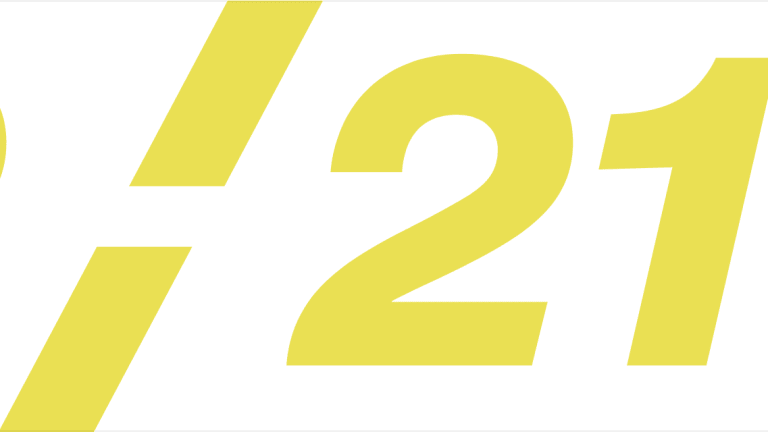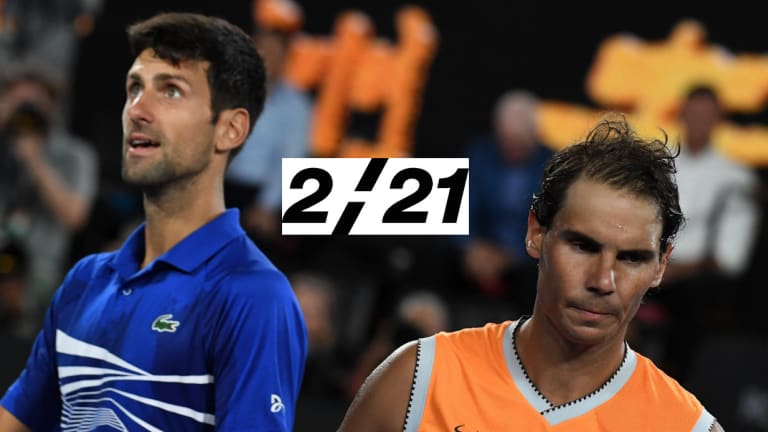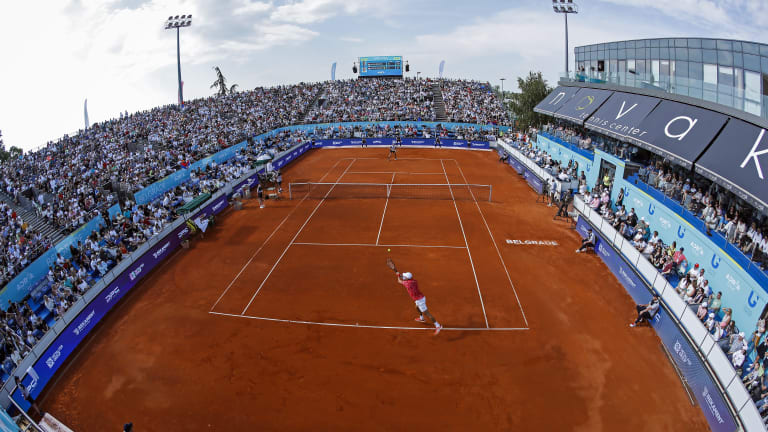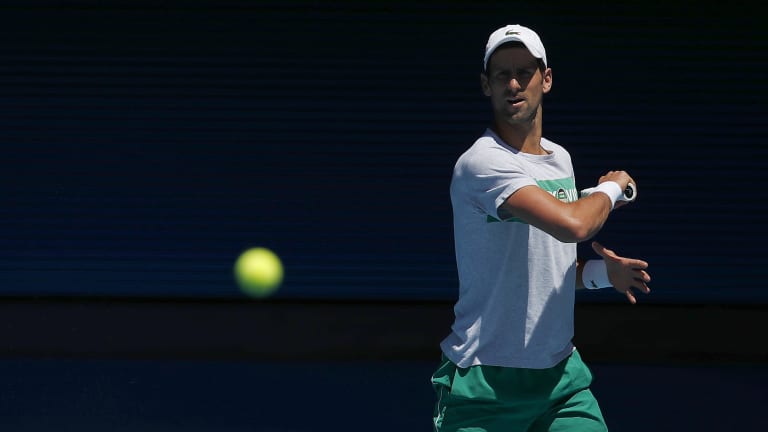The straw that stirs the drink: How Novak Djokovic found his identity
By Feb 01, 2021Indian Wells, USA
Novak Djokovic lands in Carlos Alcaraz half of BNP Paribas Open men’s draw
By Mar 03, 2026Facts & Stats
Streaks, records, milestones and more: Seven things at stake in Indian Wells
By Feb 25, 2026Pop Culture
Ilia Malinin star-struck by Novak Djokovic at Milano-Cortina Olympics: "Once-in-a-lifetime"
By Feb 09, 2026The Big T
The Big T, Episode 5: Australian Open debrief, Brad Gilbert's acting, Danielle Collins on player privacy
By Feb 04, 2026Facts & Stats
20 incredible things Novak Djokovic achieved with his run to the Australian Open final
By Feb 03, 2026Australian Open
“I just got mature”: Carlos Alcaraz used his full arsenal to beat Novak Djokovic and complete the career Slam
By Feb 01, 2026Australian Open
Novak Djokovic may finally have run out of house money
By Feb 01, 2026Quote of the Day
"It wasn't fair!": Novak Djokovic jokes playing "two against one" in AO final with Alcaraz and attendee Rafael Nadal
By Feb 01, 2026Historic Stat
Carlos Alcaraz has become the youngest man in tennis history to complete the Career Grand Slam
By Feb 01, 2026The straw that stirs the drink: How Novak Djokovic found his identity
The first installment of "The 2/21" focuses on the Serb's sometimes-rocky, always-interesting rise into the sport's most dominant player and personality.
Published Feb 01, 2021
Advertising

The straw that stirs the drink: How Novak Djokovic found his identity
Advertising

The straw that stirs the drink: How Novak Djokovic found his identity
© AFP via Getty Images
Advertising

The straw that stirs the drink: How Novak Djokovic found his identity
© 2020 Getty Images
Advertising

The straw that stirs the drink: How Novak Djokovic found his identity
© Getty Images